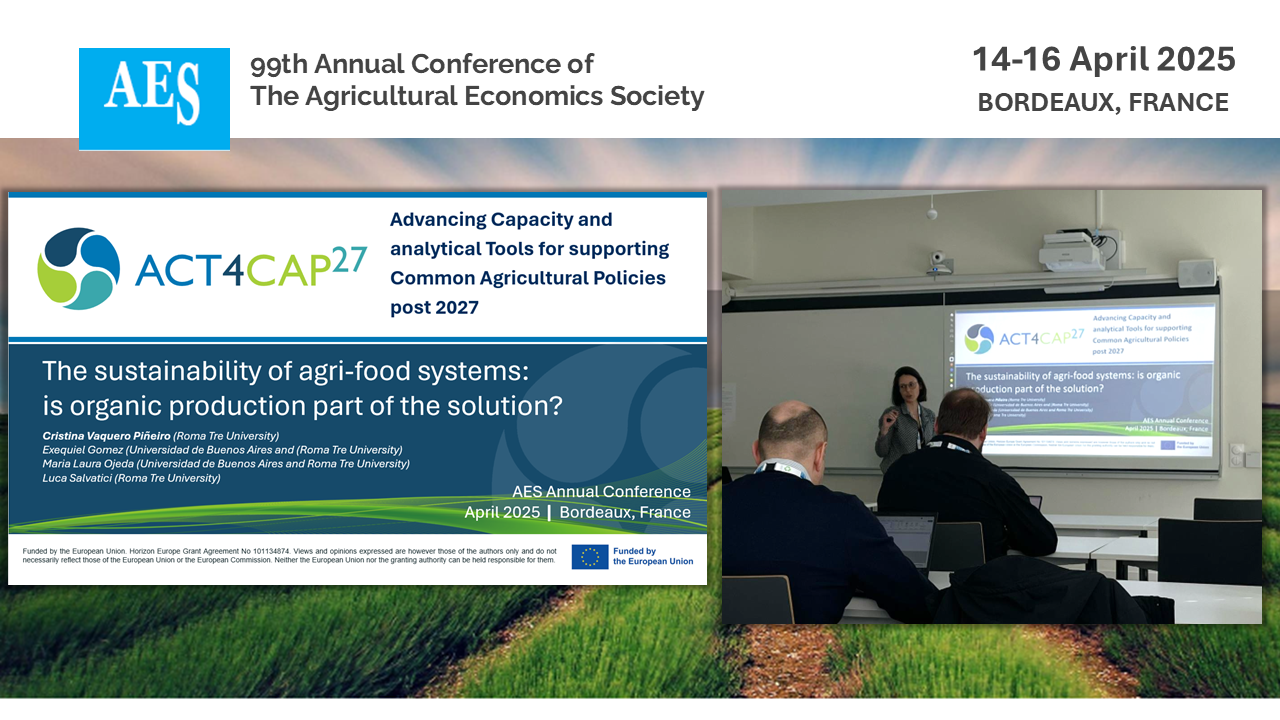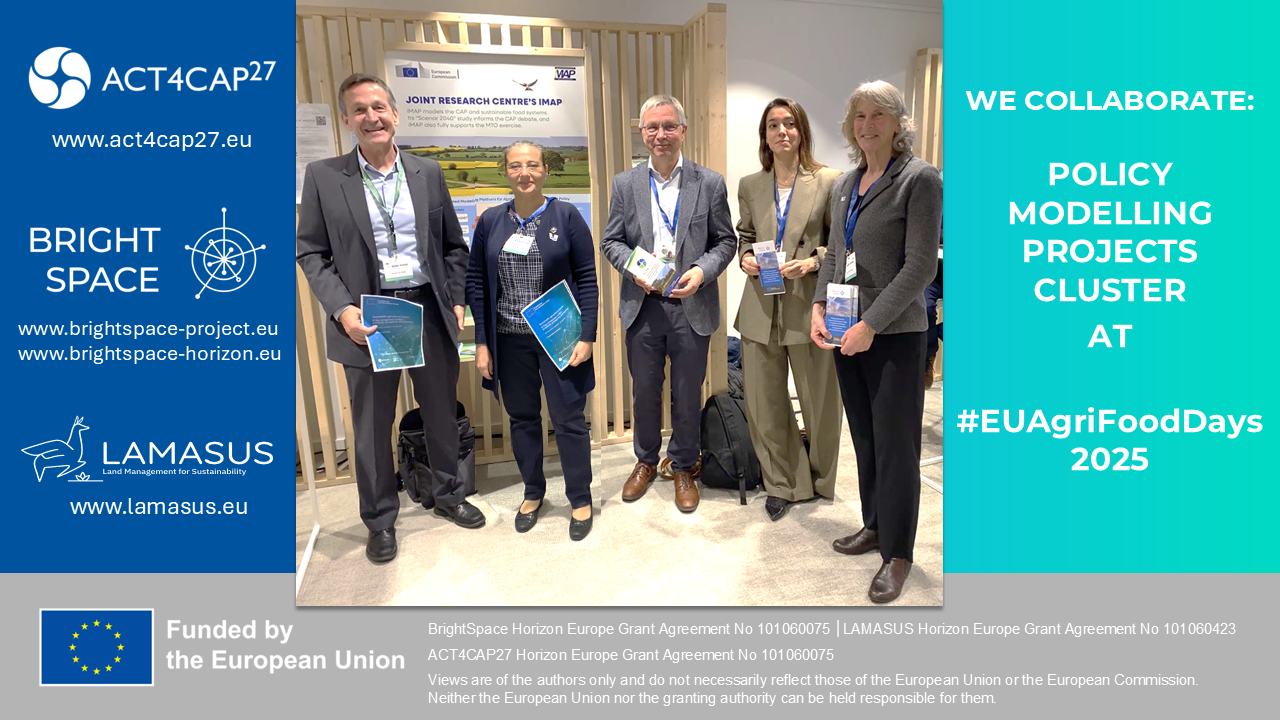At the 2025 Conference of the Agricultural Economics Society (AES) in Bordeaux France, researchers from Roma Tre University and the University of Buenos Aires presented findings under the ACT4CAP27 project.
Cristina Vaquero Piñeiro, Exequiel Gomez, Maria Laura Ojeda, and Luca Salvatici discussed the theme “The sustainability of agri-food systems: is organic production part of the solution?”, examining how organic farming contributes to — and sometimes challenges — the environmental, social, and economic sustainability goals of the European Union’s future Common Agricultural Policy (CAP).
Key Takeaways:
🌱 EU Green Deal Target: 25% of agricultural land under organic production by 2030.
🇮🇹 Case Study – Italy: Using the SIMPLE simulation model, researchers examined how organic expansion affects production, prices, and the environment.
📈 Food Availability: Organic farming could increase crop production and improve access to nutritious food.
💰 Economic Impact: Higher food prices may result, raising questions about affordability.
🌍 Environmental Trade-Offs: Slight reductions in greenhouse gas emissions, but increased use of some inputs highlights complexity.
🧩 Policy Implications: Continuous support for organic practices, along with complementary strategies, is essential for CAP post-2027.
The presentation highlighted the need for robust analytical tools and international collaboration to assess trade-offs and synergies within evolving food systems, helping policymakers design more effective CAP frameworks beyond 2027.
Read the full presentation at our Zenodo Community page: https://doi.org/10.5281/zenodo.17409350
Source: UniRoma3




